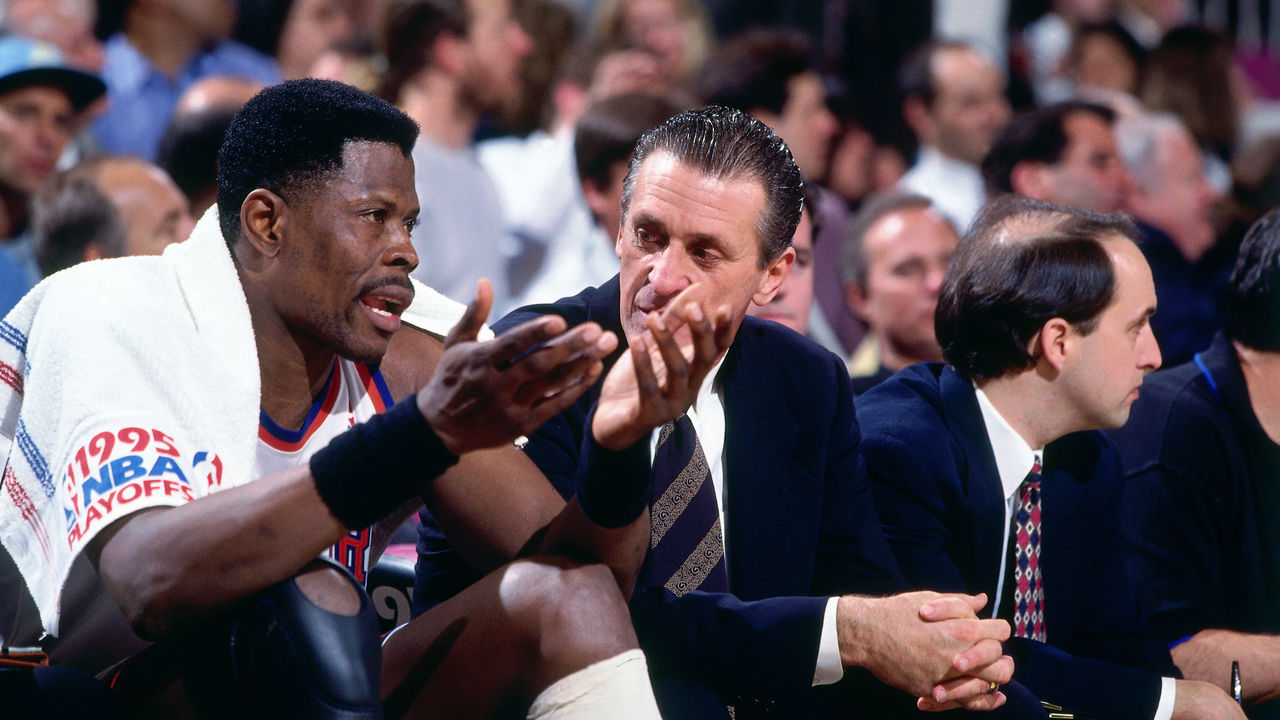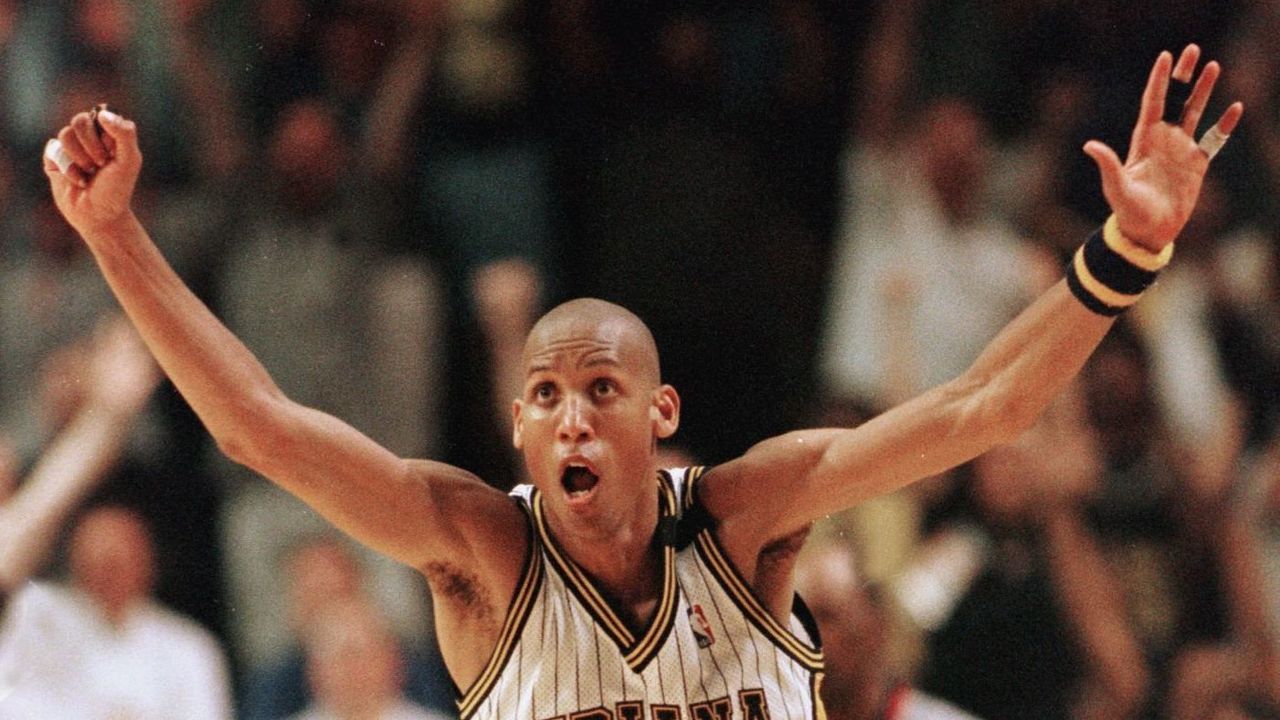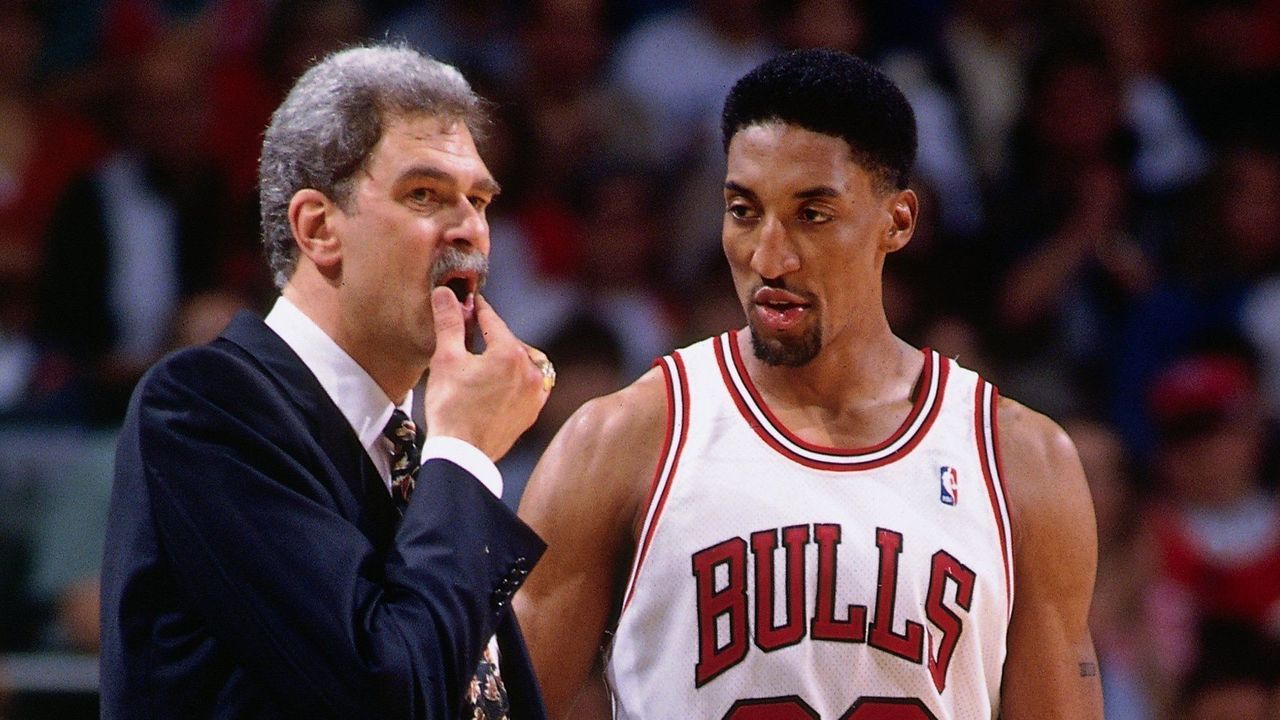'The Last Dance' takeaways: Episodes 9-10
Every week following the release of two new episodes of "The Last Dance," theScore has provided thoughts and observations from the most hyped and highly anticipated sports documentary in recent memory. We've already covered episodes 1 and 2, episodes 3 and 4, episodes 5 and 6, and episodes 7 and 8. This week, we're breaking down the final two instalments: episodes 9 and 10.
MJ's hit list

The number of times Michael Jordan found reasons to create personal vendettas - be it against Charles Barkley and Karl Malone for winning MVP awards in 1993 and 1997, against Dan Majerle for being a favorite of Jerry Krause, or against Isiah Thomas, George Karl, LaBradford Smith, and Bryon Russell for a variety of reasons both valid and manufactured - somewhat overshadows the hit list Jordan and his Bulls put together as a team, as we see in "The Last Dance."
In a trivia break during Sunday's final episodes, we were reminded that Jordan's Bulls eliminated seven different 60-plus-win teams and 20 different Hall of Fame players during the postseason.
The Cleveland Cavaliers were among the most tortured; the Bulls eliminated them five times between 1988 and 1994, beginning with Jordan authoring The Shot and concluding with the Jordan-less, Pippen-led Bulls ending the Cavs' season six years later. Chicago eliminated the Knicks five times in eight seasons between 1989 and 1996, and the Bulls beat Miami three times between 1992 and 1997, including in back-to-back seasons during Pat Riley's first two years in charge of the Heat.
Between coaching stints in Miami and New York, Jordan knocked out Riley's teams four times in six seasons between 1992 and 1997.
Utah was so close, yet so far

In addition to the teams listed above, Jordan's Bulls also eliminated several clubs twice each, but none more famously than the Jazz in back-to-back Finals in 1997 and 1998.
Memories of Jordan's heroics in those two NBA Finals make it easy to forget just how good Utah was. The 1997 Jazz were a 64-win juggernaut boasting the reigning MVP and what was then a top-16 all-time point differential. The 62-win 1998 Jazz earned home-court advantage in The Finals after sweeping the regular-season series with the Bulls.
Still, giving credit to those Jazz teams is tough without also pointing out that Utah didn't rise to the occasion in June.
The Jazz famously blew Game 1 in 1997 when Malone botched two free throws after Pippen reminded him, "The mailman don't deliver on Sundays." They entered Game 5 of a tied series that same year with home-court advantage, a 48-3 home regular-season record, a 10-0 postseason home record, and Jordan battling food poisoning. Then the Jazz built an early double-digit lead, only to squander it. Even Jordan's game-winning shot in The Flu Game was made possible because Utah couldn't secure his missed free throw.
In 1998, the Jazz won Game 1 at home only to blow a fourth-quarter lead in Game 2, lose by 42 points in Game 3, and choke away Game 6 to Jordan in the final minute, with a potential Game 7 in Utah within their grasp.
Steve Kerr has seen it all
An all-time great parade speech. 😂
— theScore (@theScore) May 18, 2020
(🎥: @warriors) pic.twitter.com/x3TaQtLBNk
Episode 9 was a good reminder that a documentary on Kerr would be fascinating, too.
The sharpshooter turned championship head coach hails from a family of scholars, has overcome unfathomable family tragedy, and has seen just about all the NBA history one can witness over the last quarter-century.
Seriously, whose eyes have seen more NBA drama during that time than Kerr's? He won five championships as a player - including four straight - with two different dynastic teams in Chicago and San Antonio. He made a title-winning jumper off an assist from His Airness. He coached championship teams, a 73-win squad, and perhaps the greatest collection of star talent ever assembled in Golden State. He coached against Finals LeBron, and took part in that epic seven-game 2016 series. Oh, and he fought Michael Jordan.
The 1998 Pacers were a problem

Think of all the great teams Jordan's Bulls beat on their way to six championships. Then consider the weight of Jordan's words after a Game 7 win over Indiana in the 1998 Eastern Conference finals: "That's the hardest we've had to work in 13 years."
The 1991-92 Knicks are the only other team to take the Bulls the distance during Chicago's six championship seasons.
Still, in the end, the Reggie Miller-led, Larry Bird-coached Pacers were reduced to a mere footnote in history by Jordan and Co. This light-hearted exchange of trash talk following Game 7 was the most Jordan-esque way to send Indiana off:
The GOAT of vanity plates
Which Michael Jordan license plate has the most SWAG??! #LastDance pic.twitter.com/CRdDZV6p62
— Darren M. Haynes (@DarrenMHaynes) May 18, 2020
The shot of Michael Jordan's Porsche with the "Air" vanity license plate offers me the opportunity to share that I collect images of Jordan's many vanity plates over the years. pic.twitter.com/U1nE8hIxa0
— Jason Diamond (@imjasondiamond) May 18, 2020
Let's get ready to rumble
I had completely forgotten that Utah brought out Michael Buffer to hype up the crowd before an NBA Finals game.
The Warriors also did that a few years ago, and honestly, the NBA needs to pay the man to do this as often as necessary. Imagine if the Raptors' ring ceremony this season included Buffer introducing the team as the "reigning, defending, champions of the woooooooorld." Absolute scenes.
'There are some things worth missing practice for'
Those iconic words don't come from Jordan, Pippen, Dennis Rodman, Phil Jackson, or any of the other main characters featured in "The Last Dance."
No, Hulk Hogan uttered the phrase in a WCW promo the day Rodman went AWOL on the Bulls in the middle of the freaking NBA Finals.
Dennis Rodman left unannounced in the middle of the NBA Finals to go wrestle with Hulk Hogan. Imagine that happening today 😂 #LastDance pic.twitter.com/s1qKQs2uD8
— Matt Sullivan (@msully_94) May 18, 2020
Rodman, like the Bulls team the series profiles, is simply one of a kind.
On a side note, imagine what it felt like being a Jazz fan. The Bulls had already eliminated your team in The Finals the previous season. Now you're licking your wounds after losing Game 3 by 42 points a year later, and you have to watch Hulk Hogan, of all people, mock the fact that Dennis Rodman is bullying your franchise player.
The best 36 seconds in NBA history?
For a legendary athlete ending a championship run, does it get better than Jordan scoring on one end, stripping a fellow future Hall of Famer (Malone) at the other end, and then coming back down to hit the title-winning jumper to secure a sixth championship to cap off his team's "last dance"?
Credit to Bob Costas, too, for noting the historical gravity of the situation throughout the sequence. That run, that moment, and that call will live in basketball lore forever.
Was it a push-off?

While the rest of the basketball world has celebrated that moment, Jazz fans have spent the better part of 22 years insisting Jordan's championship-clinching shot over Russell was only made possible because the league icon got away with an offensive foul.
How Jordan set up his defense on this matter during Sunday's final episodes was fascinating. In episode 9, while discussing Russell's misguided confidence during a moment unrelated to Game 6, Jordan tells viewers that the forward defended on his toes (and not in a good way). When episode 10 finally gets to Jordan's last shot as a Bull, MJ claims he didn't need to push Russell because the defender's momentum was going to carry him that way regardless.
If you don't believe Jordan was thinking about the push-off when he first discussed Russell's defense and how the Jazz forward moved on the court, then you don't know Jordan.
No 7th heaven for Bulls

Whether the Bulls could've won eight straight titles had Jordan never retired to play baseball is one of the NBA's most popular "What if?" debates. But less time is devoted to the question of what might've been had the Bulls kept the band together for another run in 1998-99.
Jerry Reinsdorf offered Jackson another year of coaching duties, despite Jerry Krause's earlier comments that even a perfect season couldn't save Jackson's job, and Jordan says at the end of episode 10 that he would've come back on a one-year contract. Jordan also said he believes if Reinsdorf, Krause, and Co. were truly willing to spend big and bring everybody back, Pippen would've returned, too.
While we'll never know if that was the case - and Jackson said he thought it was time for a break - it's fascinating to consider the situation at the time.
Imagine how confounding it would all be in today's social media era. The greatest singular force the game had ever seen was still playing at an MVP level, and his team had just completed a second three-peat. Yet the organization was concerned about paying to keep the roster intact, worried the players in question wouldn't be worth their new contracts in the long run.
Most franchises stop at nothing to secure just one championship. Reinsdorf's Bulls thought gunning for a seventh was too much of a gamble.
The dance is over

The circumstances surrounding the airing of "The Last Dance" - with the sports world, and the world at large, at a standstill in the face of a global pandemic - made the series feel like such a cultural moment. Now it's over, and it almost feels similar to when an actual season wraps up.
Millions of basketball fans gathered with only those closest to them to watch two hours of basketball-related programming once a week for the last five weeks. Basketball Twitter was ablaze, and fans came together on social media in ways we haven't seen since the season was suspended two months ago.
So with the music fading out, and the dance coming to an end, the question becomes ... now what?
Joseph Casciaro is theScore's senior basketball writer.